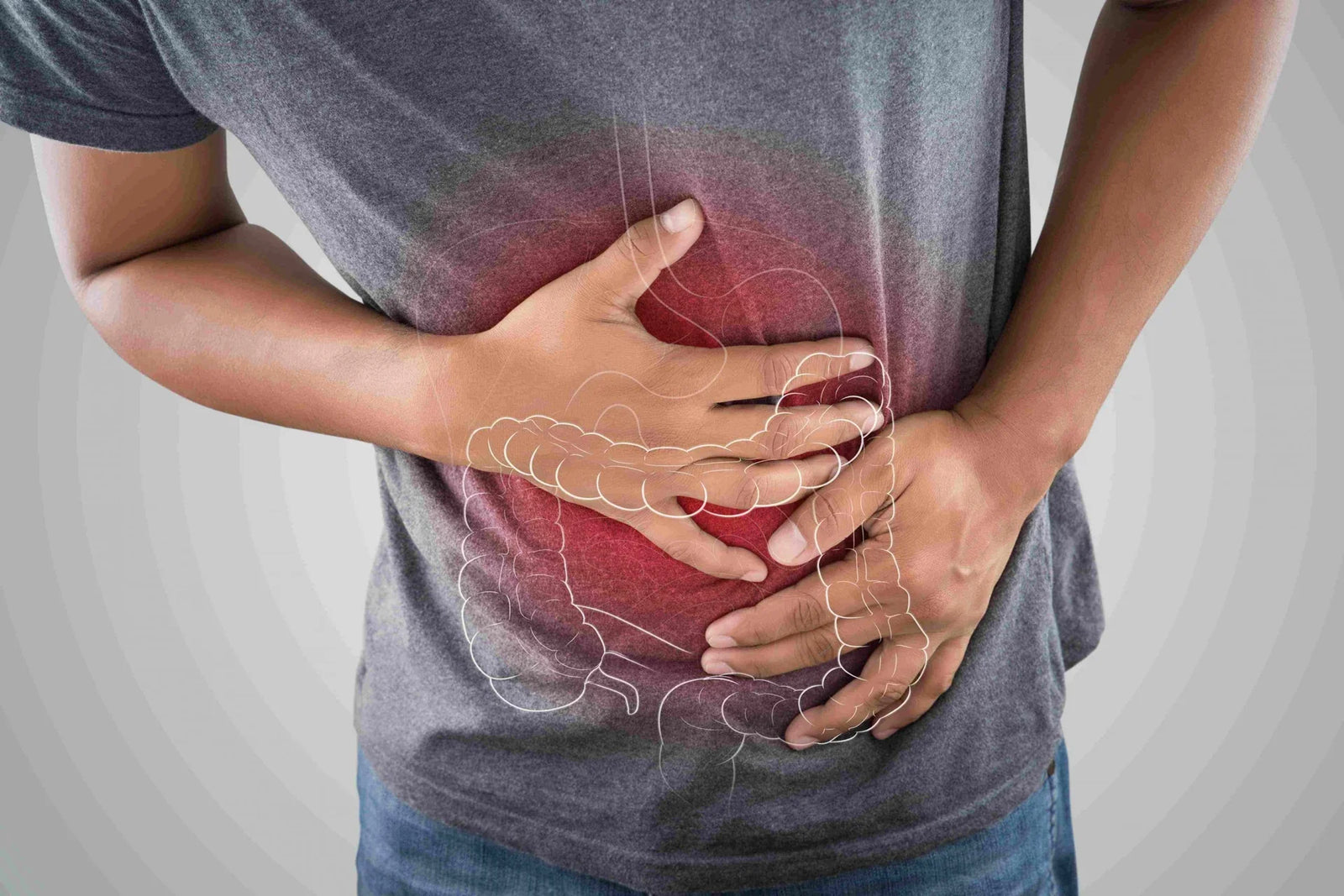Think of the digestive system like an automobile fuel and exhaust system. If you put the wrong fuel type, or use poor quality fuel - the result will be poor performance and eventual breakdown. The symptoms can vary - nausea, bloating, constipation, upset stomach, gas etc. Before you consider tea, you should take a self assessment into your current diet. Are you consuming processed foods? Lots of sugar? Depending on the severity of your symptoms, such as severe IBS, you may want to see a doctor, especially one well versed in nutrition . However there are plenty of resources that you can utilize to self diagnose and take the first steps.
Three Steps to Fixing an Upset Stomach
First - analyze your diet and eliminate processed food, and sugar - which can fuel the 'bad' bacteria.
Second - Are you suffering specific symptoms? Certain foods, like garlic may increase gas and bloating in some people. The process of elimination can determine if specific foods or food groups are causing issues.
Third - Improve your gut health. This means incorporating both prebiotics and probiotics. While there are many resources about which foods provide good natural sources of these nutrients, one recommendation is a combination of prebiotic (museli) and probiotic (yogurt). Kombucha is also an excellent tea based probiotic.
Switch it up. Try Tea Instead of Coffee.
Coffee may cause digestion issues because of its high acid content and caffeine content. You may want to limit OR eliminate coffee in your tests and switch to tea for your upset stomach.
Consider tea PART of the diet. First, it can be used as your primary fluid intake instead of water. Secondly, tea will contain less caffeine than coffee. Most herbal teas contain no caffeine. A combination of regular and herbal tea consumed throughout the day will allow you to enjoy the benefits of tea without overdosing on caffeine.
Teas That Can Help with Upset Stomach
Pu-erh - the after meal tea
Pu-erh tea is fermented tea that has it's own unique health properties. For hundreds of years, the Chinese have used Pu-erh tea to aid in digestion after meals. Pu-erh has also been linked with weight loss and lower cholesterol. Since Pu-erh contains modest amounts of caffeine, it will help make the body more efficient at digestion. Drink it either in the morning or after lunch.
Herbal Teas for Upset stomach
There are numerous herbs that have been used for many years to alleviate various ailments including digestion. Drinking these herbs or blends that contain them are a great way to introduce digestion friendly ingredients into your diet. We recommend herbal blends that combine various ingredients, so you get an assortment of teas for upset stomach.
Peppermint
Peppermint is often the primary ingredient used in the relief of gastrointestinal disorders. It helps calm the stomach.
Chamomile
This herb has been used for indigestion, acidity, bloating, nausea and gastritis.
Ginger Root
Ginger helps stimulate saliva, bile and gastric juice production. Drink before or pair it with a meal.
Fennel
A popular use of this tea is for upset stomach and settling stomach pain
Lemon Balm
Another tea that has been used for over 2,000 years to treat a variety of digestive issues
Licorice Root
Glycyrrhetic acid has been isolated and shown to kill bacteria, especially Gram-negative and those resistant to antibiotics, as well as some viruses and yeasts. Another chemical, hispaglabridin, was also found to be potent against bacteria
Probiotic Teas (Kombucha)
Pu-erh, while it is fermented is not "alive" when you drink it. As we mentioned earlier, this would be kombucha. It is available in most grocery stores, and can also be home brewed. It contains live cultures like yogurt or Kefir, it would be something to drink to improve your gut health.
Probiotic Pills, and Other Packaged Probiotics
One study showed that many prepackaged products and pills were not that effective at increasing gut health. The subject took a test of their microflora diversity and found that just taking probiotics LOWERED their diversity. One reason discussed that many common probiotic products, especially pills or mass produced products contain only a few common strains of bacteria. Better results were observed with a diet full of prebiotics.
Conclusion
Think of tea as a low dose medicine. Drinking it in moderation throughout the day will expose your body to anti-oxidants or other beneficial properties from herbs. No one tea is going to be a magic bullet. Diet - with tea being part of it, will be one of the easiest ways to start improving your digestion. If your symptoms do not go away or are severe - consider meeting with a nutritionist.















